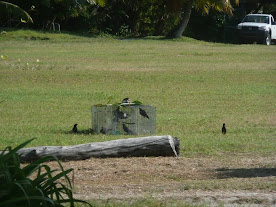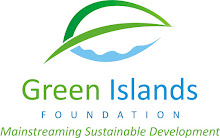
Denis Island turns the corner…
Denis Island began its ecosystem restoration programme 10 years ago when it undertook a preliminary alien mammal species assessment. Cats were subsequently eradicated in 2000 and rats in 2002. This is very important as Seychelles naturally has no terrestrial mammals, except for two species of bat, and the fauna and flora of the islands have evolved therefore without the necessary adaptations to cope with the impacts of animals such as rats, cats, pigs and goats. Today Denis represents 17.5% of the rat-free land in the central archipelago and is thus vital to several national conservation initiatives.
Denis Island has embraced stakeholder partnership as a means of furthering its own and national environmental objectives. In 1999-2001 Denis worked with Nature Seychelles to rehabilitate 35 hectares of broadleaved woodland habitat on the island in order to enable the introduction of rare endemic birds. In 2004 the rare Seychelles fody and Seychelles warbler were introduced and monitoring over subsequent years has shown that the populations have established well and are expanding. Then in June of this year, again in partnership with Nature Seychelles, 20 endangered Magpie robins were introduced and here too progress is very encouraging with island’s first fledgling developing well.
In 2006 Denis signed an agreement with the Green Islands Foundation (GIF), a local NGO, to develop an environmental management plan and provide technical support for its environmental initiatives. Since that time GIF has initiated various programmes on Denis, developed the island’s ecotourism product and established various databases. The monitoring undertaken has come at a crucial time and has recorded some major landmarks in the natural recovery of the island’s ecosystem post the 2002 rat eradication.
Over the last year Frigate birds have established a regular roost on the island with up to 50 birds being recorded; and a relatively large roost (200 – 300) of Bridled terns has also started to utilise the island out of breeding season.
Ground nesting seabirds are particularly vulnerable to rats and cats and so seabird occurrence has been monitored closely. In November of 2007 there was a most encouraging discovery of a small colony of wedge-tailed shearwaters. This bird excavates burrows underground in which to roost and breed. The new colony consists of only 20 or so burrows but has expanded over the last year and represents a major breakthrough in the recovery of the island’s ecosystem.Over the last 3 years a few pairs of white-tailed tropicbird have been noted to breed on the island in some tree cavities and also one high up in the lighthouse! What was really awaited however, was the first occurrence of ground nesting. Then last month, having seen none over the preceding 3 years, 3 adults were found nesting on the ground within 24 hours and the island now has its first tropicbird chick in a ground nest!!
These discoveries are fantastic news as they really show that the island has turned a corner in its recovery such that wild species like the shearwater and tropicbird are once again finding it suitable to establish colonies.
These developments are the fruit of 10 years of work and investment by Denis Island and show that man can work to restore island ecosystems and furthermore do so within the context of tourism and landscape production activities. This progress demonstrates that development and conservation can be undertaken side-by-side and indeed in the case of Denis can be considered interdependent. After all it is the revenue from the tourism development and landscape production activities that subsidises the rehabilitation and conservation programmes. Now these programmes have in turn resulted in a healthy and more productive ecosystem and an enriched ecotourism product for the resort.

























No comments:
Post a Comment